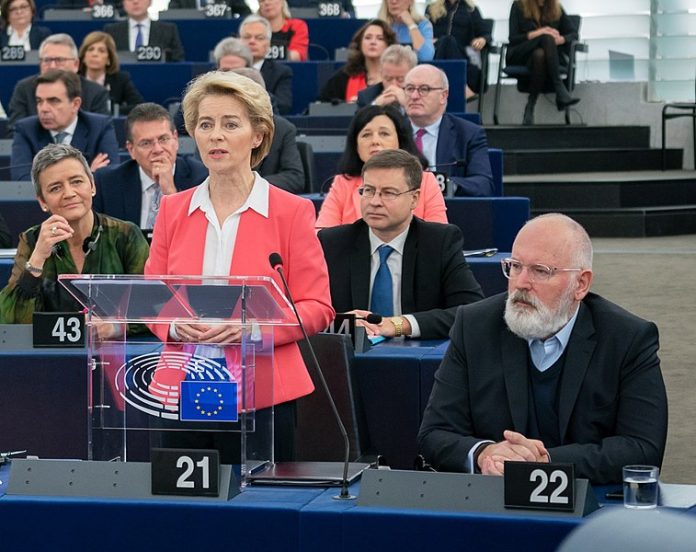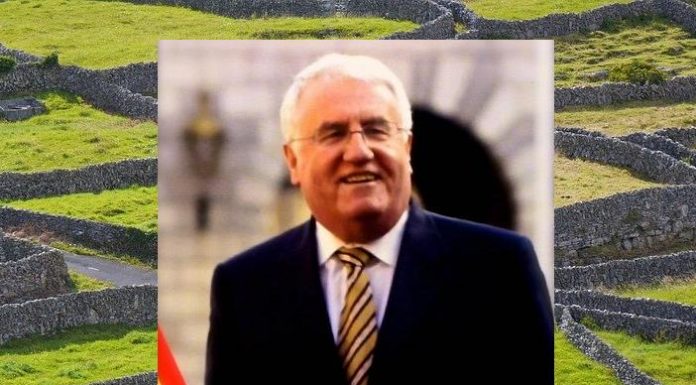
By Professor Samuel Furfari, formerly a senior official at the Energy Directorate-General of the European Commission (1982-2018), Professor em. at Université libre de Bruxelles
The green utopia of Brussels and Strasbourg and the EU’s primary anti-nuclearism have put a de facto end to the Euratom Treaty. As there is only one year to go before the European Parliament elections, how can we avoid that we end up with European disunity and degrowth?
The Treaty establishing the European Atomic Energy Community, commonly known as the Euratom Treaty, was signed in Rome on 25 March 1957. The aim of the founders of what was then called the European Community was to provide it with abundant and cheap energy.
In the beginning, there was cheap, abundant energy
That was the aim of the Euratom Treaty. Its ambition was to provide “the conditions for the development of a powerful nuclear industry” capable of guaranteeing the energy independence of the six founding countries of the EU. It enabled the construction of a flourishing nuclear industry… until a few years ago. This extremely well-conceived treaty did not need to be revised for 76 years. Everything about it had been thought through, including the safety and security of any use of fissile materials, which led to the establishment of a nuclear inspection directorate within the European Commission’s Directorate-General for Energy.
This has enabled Member States developing nuclear energy for civil use to have access to cheap electricity while controlling the security of their electricity supply. The advent of nuclear power in the 1970s meant that the EU no longer used oil products to generate electricity, which greatly helped to break OPEC’s geopolitical strategy of forcing Western countries to abandon their support for Israel.
Today, nuclear power accounts for a quarter of the EU’s electricity production. In France, the most nuclear-powered country, it supplies 41% of primary energy demand, making it one of the few countries in the world where oil does not account for the largest share of the energy mix.
However, in the meantime, the EU has gone “green” and Brussels and Strasbourg now only tolerate certain energy sources, wind and solar power in particular. The European Commission, which is supposed to be the “guardian of the Treaties”, is flouting the Euratom Treaty by no longer promoting nuclear energy, as required by the text.
Von der Leyen: Nuclear not 'strategic' for EU decarbonisation – @EURACTIV https://t.co/5duTrkZ6KY
— Frédéric Simon (@FredSimonEU) March 24, 2023
The end of Euratom
We are all familiar with the setbacks which nuclear power has suffered since the Ursula von der Leyen-Frans Timmermans duo entered office, claiming to lead the decarbonisation of the world. Both top EU officials have done everything in their power to paralyse nuclear energy in favour of tolerated energies. They have not succeeded, thanks to the determination of a few heads of state or prime ministers.
15 EU Member States and the UK have realised that they can no longer rely on the European Commission to relaunch much-needed nuclear energy. At France’s initiative, they met in Paris on 16 May and created a “Nuclear Alliance”. This alliance will prepare a roadmap for the development of an integrated European nuclear industry to achieve a capacity of 150 GW of nuclear energy in the EU electricity mix by 2050 (it is currently 110 GW) through the construction of 30 to 45 new large reactors and the development of small modular reactors (SMRs) in the EU.
EU "NUCLEAR ALLIANCE" BEING PREPARED:
France is now fully defecting from Germany's suicidal energy policies. Remarkable turnaround after 2 decades of self-sabotaging energy appeasement.
Energy ministers from 12 EU countries reliant on nuclear energy will discuss forming a bloc! https://t.co/h00ZMUYAcX
— Mark Nelson (@energybants) February 26, 2023
It's not as if 16 out of 27 European countries joined in a nuclear alliance to decarbonize the continent. An alliance formed by France, which also supports renewable energies. But nothing is too good to do French-bashing while Germany pollutes the continent with coal-fired plants https://t.co/xUGXD3R8x1
— Valentin Chevallier (@ValenChevallier) May 19, 2023
The alliance is also asking the European Commission to promote this policy “in the EU’s energy strategy”, which it obviously cannot do without denying itself. Moreover, it is simply impossible, because Austria and Germany do not want nuclear power at all, not to mention the ecologists of all stripes who occupy the European Parliament in Strasbourg. In fact, Austria has included a ban on nuclear power in its constitution.
The poor EU Energy Commissioner, Kadri Simson, said she was in Paris “to listen to their concerns”, while her boss, Frans Timmermans, is absolutely tone-deaf when it comes to nuclear energy. Her dilemma is evident, since she is Estonian and her country is part of this nuclear alliance.
What is likely to happen? The Euratom Treaty has been sidelined, but some EU Member States have understood that EU policy makers in Brussels and Strasbourg are prepared to not only tolerate but also promote energy shortages. They do not want China, Russia, Korea and the United States to dominate the future of the world’s electricity. So they want this alliance to replace the Euratom Treaty. Energy, which was the construction foundation for the EU (ECSC and Euratom treaties), is now becoming the wedge that threatens to undo what has been successfully developed over 2/3 of a century.
The union of “degrowth”
Another event that took place at the same time adds to the pessimism. Another alliance, that of all the “degrowthers” in the EU, met on the same day at the Brussels headquarters of the European Parliament. There, the “Beyond Growth” conference brought together European ecologists and the Brussels constellation of environmental NGOs, which are generously funded by ‘projects’ supported by the ad hoc programmes of the European institutions.
The masks have fallen. Given their opposition to co2-neutral nuclear power, it was already clear reducing co2 "to save the climate" was merely a front for what the "greens" really wanted. They now openly embrace calls for "#degrowth" (aka poverty and destitution). https://t.co/ieI1JHC8B3
— Pieter Cleppe (@pietercleppe) May 18, 2023
Beyond Growth met in the hemicycle of the European Parliament. This lends it an image of seriousness, as citizens who are far from familiar with the arcana of Brussels are unable to tell the difference between such a conference and a formal parliamentary meeting. This was all the more given how Roberta Metsola, the President of the European Parliament, “upgraded” the conference with her active presence, sending out a clear message to the general public who know nothing about it: the EU is moving towards degrowth to save the planet.
Also the President of the Commission, Ms. von der Leyen, declared that “the growth model based on fossil fuels is simply obsolete”*. So 81% of the world’s fossil fuels would need to be replaced by officially permitted energy sources, but going from the current 3% share of such energy sources to 100% is physically impossible. Let’s not even mention their desire to ban nuclear power. This is why degrowth is unavoidable if the current policies are continued, even if it is not being openly said. The hundreds of participants understand very well that degrowth is just around the corner, and applauded wildly (check out the video)!
How much longer will EU Member States remain patient? Admittedly, they are constrained by the promises of hundreds of billions of euros in funding handed out by the European Commission and the European Investment Bank. But as a result of pressure by their population, who are not prepared to resign themselves to degrowth while the rest of the world – and the BRICS in particular – rush to invest into fossil fuels and nuclear energy, they will eventually rebel and create a common-sense energy alliance, like the nuclear alliance. Even more dangerous than the opposition to nuclear energy is that the degrowth movement therefore contributes to the breakup of the EU.
Let’s in any case use our right to vote at the European elections on 9 June 2024, to put an end to all of this. We have one year to stop the destruction of the EU.
Originally published in French on Factuel
Disclaimer: www.BrusselsReport.eu will under no circumstance be held legally responsible or liable for the content of any article appearing on the website, as only the author of an article is legally responsible for that, also in accordance with the terms of use.












